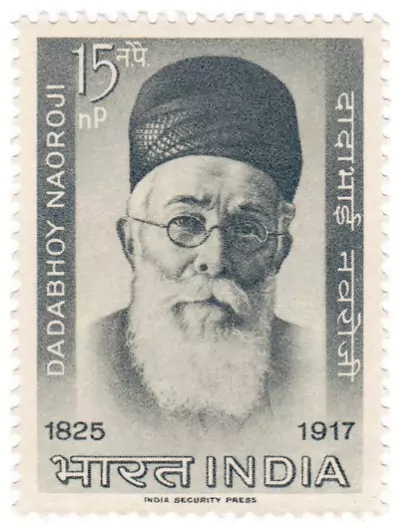On 4 September 2025, the nation paid tribute to Dadabhai Naoroji, remembered as the “Grand Old Man of India” and pioneer socialist, on his 200th birth anniversary.
Early Life and Career of Dadabhai Naoroji

- Birth & Background: Born on September 4, 1825, in Bombay (Mumbai) into a priestly Parsi family.
- Education: Graduated from Elphinstone College; earned the Clare Scholarship and became the first Indian professor at Elphinstone College in 1845.
- Professional Journey: Moved to London, joined Cama & Co., and established his own firm, Naoroji & Co., in 1859.
- Academic Role: Served as Professor of Gujarati at University College London.
Key Contributions of Dadabhai Naoroji (1825–1917)
Literary Contributions
- Poverty of India (1876)
- Poverty and Un-British Rule in India (1901)
- The Wants and Means of India
- The European and Asiatic Races
- The Parsee Religion
|
Political Contributions
- Indian National Congress: Served as President thrice—1886 (Calcutta), 1893 (Lahore), 1906 (Calcutta, where he declared the demand for Swaraj).
- Moderate leader: Advocated constitutional and peaceful methods like petitions, prayers, and protests.
- East India Association (1867): Founded in London to highlight Indian grievances before the British public.
- First Indian MP (1892): Represented Finsbury Central in the British Parliament, raising issues of taxation, administrative reforms, and Indian representation.
Views on British Rule
- Critic of Colonial Policies: Strongly opposed the exploitative nature of British rule in India.
- Drain Theory: Explained how Britain systematically drained India’s wealth through high administrative costs, unfair trade policies, pensions to non-Indians, and debt repayments.
- Economic Impact: Showed how these practices stifled Indian industries, deepened poverty, and fueled unemployment. His critique gave the national movement a strong economic foundation.
|
- Reforms at Home: Member of Bombay Municipal Corporation (1875) and Bombay Legislative Council (1885). Helped establish the Bombay Presidency Association (1885).
- Advocacy: Consistently pressed for equal opportunities for Indians in governance and civil services.
Role in India’s Freedom Struggle
- Voice of India: Through speeches, writings, and associations, exposed the economic exploitation of India.
- Dewan of Baroda (1874): Briefly served to improve governance but resigned due to differences with the Maharaja.
- National Planning: Advocated for indigenous industries and equitable policies, influencing later leaders like Gandhi and Nehru.
- Alliances: Collaborated with reformers such as A.O. Hume, Gopal Krishna Gokhale, and Badruddin Tyabji to strengthen the movement.
Social Reforms
- Women’s Education: Championed education for women, promoted it actively as a professor at Elphinstone College.
- Zoroastrian Values: Authored The Duties of the Zoroastrians, stressing purity in thought, speech, and action.
- Newspaper: Launched Rast Goftar (The Truth Teller) in 1854, a Gujarati fortnightly to promote reform within the Parsi community.
- Equality and Justice: Advocated for a society based on fairness, inclusivity, and respect across communities.
Legacy and Influence
- Economic Nationalism: Drain Theory became a rallying point for anti-colonial struggles.
- Swaraj: Among the first to call for self-rule, inspiring future freedom fighters.
- Cultural Bridge: Acted as a link between Indian aspirations and British politics, helping build understanding and alliances.
- Inspiration: His dedication influenced leaders like Gandhi, Nehru, and Tilak, shaping India’s nationalist thought.
![]() 6 Sep 2025
6 Sep 2025

